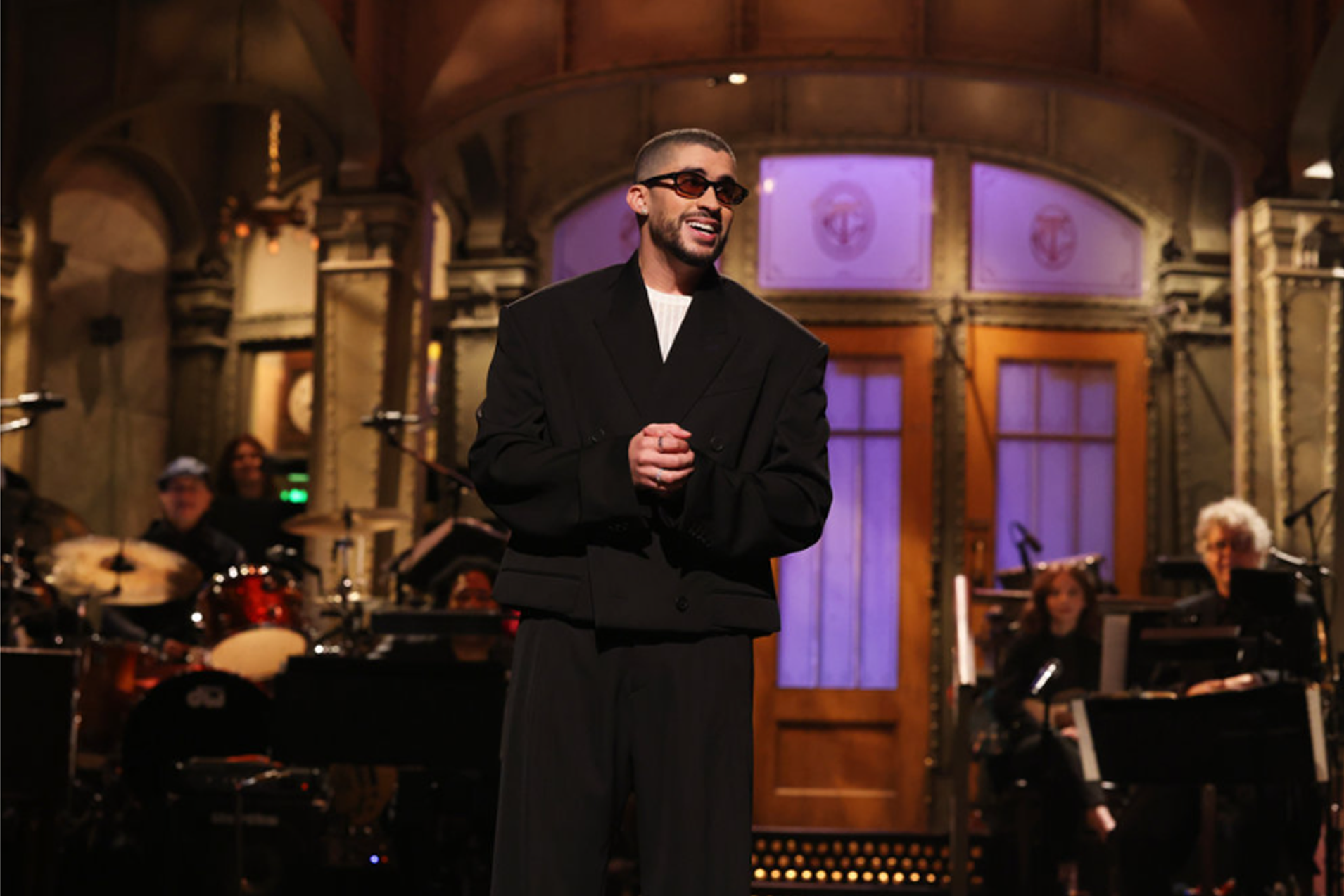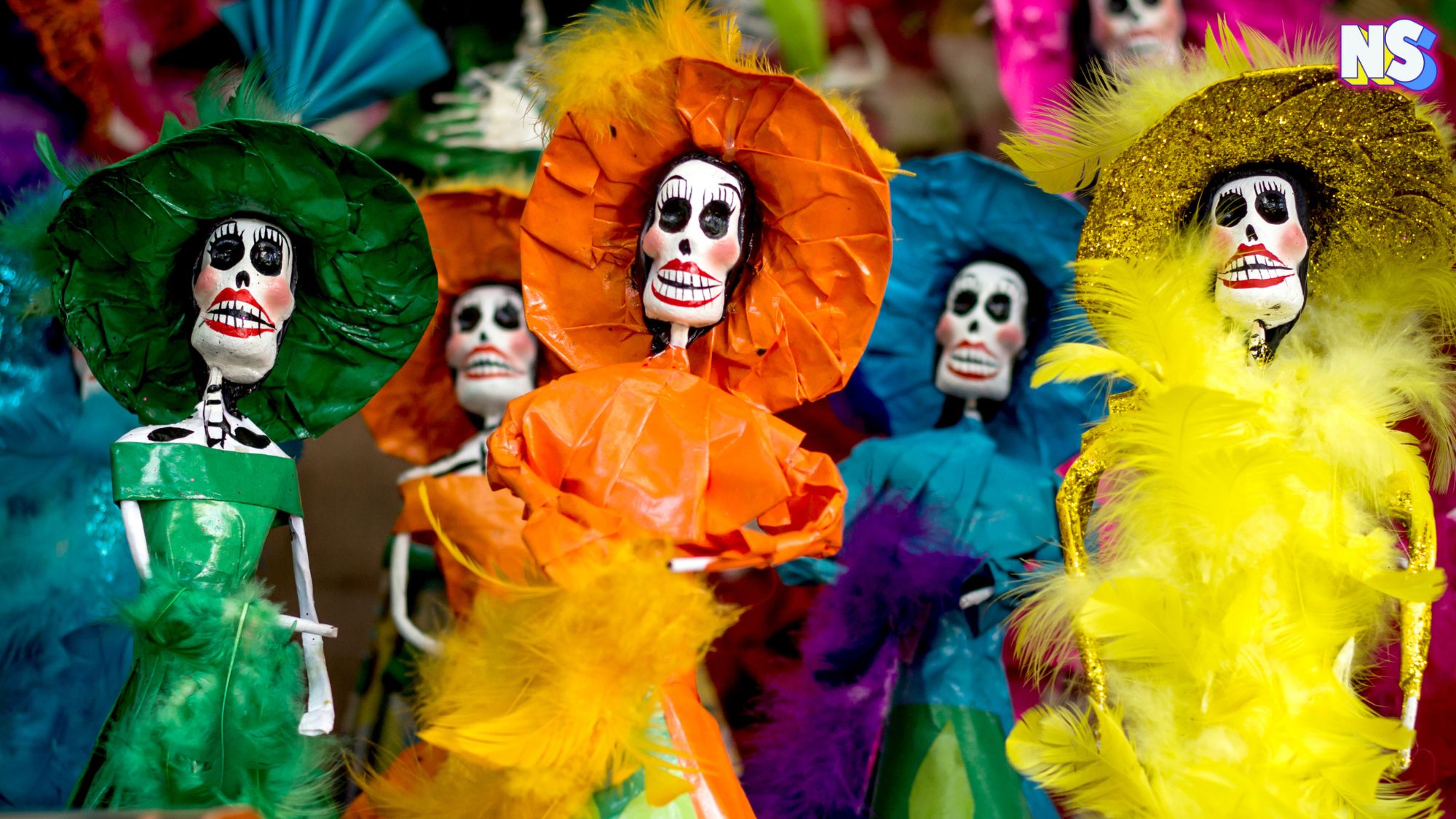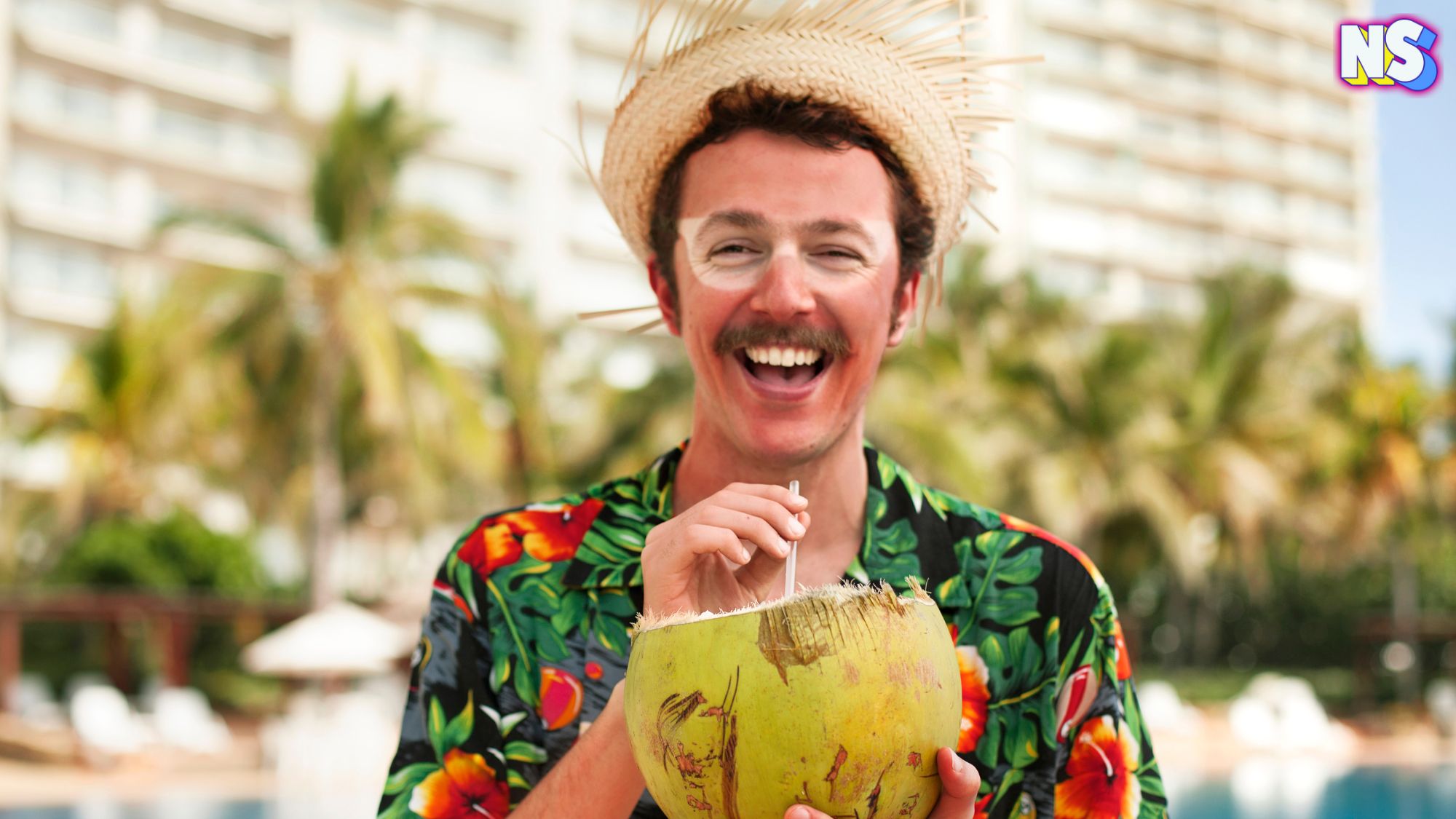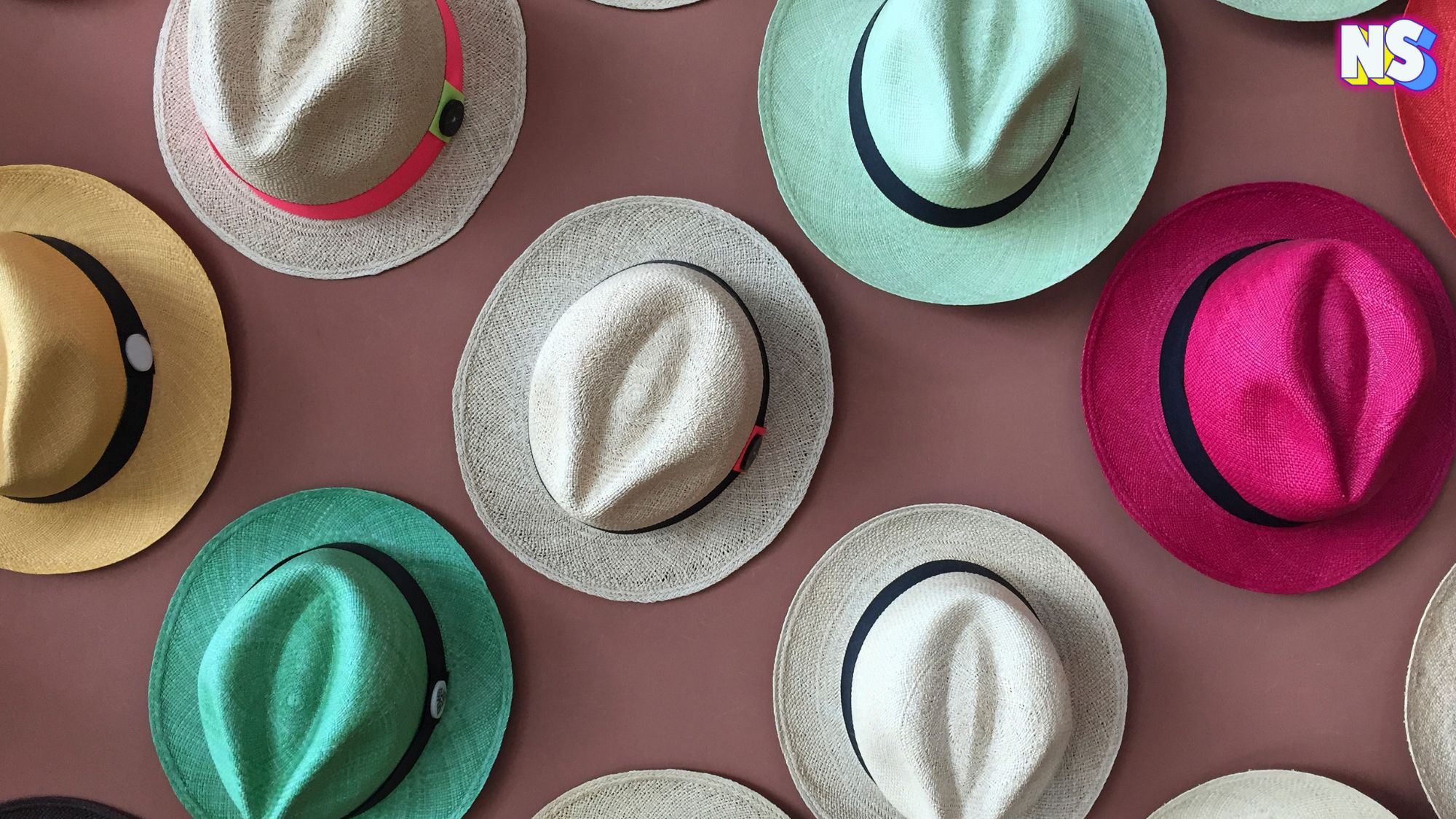Host Bad Bunny during the Monologue on Saturday, October 21, 2023 -- (Photo by: Will Heath/NBC)
Like many others in our community, I’ve complained about the lack of representation of Latinos on NBC’s longest-running comedy sketch show, Saturday Night Live (SNL). Then, like clockwork, I’m glued to the small screen every week, looking for the show's timely and evergreen one-of-a-kind humor. Heck, I even watch my favorite segments over and over again on YouTube.
Call it hypocrisy or nostalgia (or something else), but I’m simply drawn to the quick-witted jests from SNL’s comedic maestros.
So, when the Puerto Rican Rapper Bad Bunny hosted the show – kicking it off with a bilingual monologue, no less –, on Saturday night, I know I wasn’t the only one shedding tears of joy in Spanglish.
This was after a week of wondering whether or not the predominantly Spanish speaker could even pull it off. Apparently, this was a concern for many of us longtime Bad Bunny and SNL fans.
"Can I host the show? English isn't my first language," he playfully questioned, setting the stage for the historic night. "I don't know if they know, but I do whatever I want," he quipped.
And he did. Not only did he pull off the multilingual feat (his song performance included French lyrics), he didn’t seem to hold back from the get go.
Like, the SNL closed-captioning translated Bad Bunny’s Spanish opening monologue with "Speaking in Non-English." As pointed out by the Huffington Post, this was a jab at the Grammy Awards, where Bad Bunny had rocked the stage back in February of this year – performing a medley of his songs in Spanish, while viewers noticed the captions reading "SINGING IN NON-ENGLISH" and "SPEAKING IN NON-ENGLISH." This closed-captioning debacle at the Grammy Awards had prompted backlash, with viewers, including the deaf and hard of hearing community, condemning the captions as "insulting," "racist," and "ignorant."
So SNL and Bad Bunny addressed it head on in the first few minutes of the show.
"Excuse me, can we change that, can we do it right?" Bad Bunny requested, leading to a hilarious revision of the closed captioning to "SPEAKING A SEXIER LANGUAGE."
Chilean-born actor, and former SNL host, Pedro Pascal – of Game of Thrones and The Mandalorian fame – joined the stage, attempting to be Bad Bunny's translator during the monologue.
But the real treat of the night was Bad Bunny's historic Spanglish SNL debut, where he seamlessly flowed between English and Spanish, both in his monologue and in subsequent sketches. Pascal, along with Lady Gaga and Mick Jagger, made cameos during the show (in Spanish, of course).
In an SNL first, one sketch even played out entirely in Spanish, with non-Spanish-speaking cast member Mikey Day gamely delivering most of the lines, proving that laughter transcends language barriers.
This all comes two years after Bad Bunny and Singer Rosalia made SNL history by performing their Spanish-language hit La Noche de Anoche on the English-language show.
Yet, for a trend-setting show which prides itself in diversity, Hispanics have been underrepresented since inception in 1975, to put it lightly.
A Bilingual Comedy Fiesta to Remember
The moment Bad Bunny went all Spanglish on SNL is what so many of us loyal viewers had been waiting for. It’s the moment we could finally say: SNL loves Latinos! (Maybe the word “love” is a bit much in this context, but, please, let me have this moment to rejoice … it’s been a long time coming.)
So let’s mark the date, October 21, as a turning point in SNL's rich history. It marks only the second time in this iconic entertainment institution's long run that a Latino artist has hosted and been the musical guest of.
The last time such a dual-role feat was accomplished was in 1976 when the beloved Desi Arnaz, the Cuban luminary of I Love Lucy fame, graced the SNL stage.
Here’s another sobering statistic: less than two percent of all SNL hosts have been from Latino backgrounds. And less than a handful of Latino writers, and only four cast members, have been part of the show’s makeup in over half a century.
Today, the only Latino cast member is Marcelo Hernandez, of Cuban and Dominican heritage. Before Hernandez, the only other SNL Latino cast members have been Melissa Villaseñor (of Spanish and Mexican roots), Fred Armisen (of Venezuela descent) and Horatio Sanz (with Chilean origins).
But if the resounding applause and social media fervor that followed Saturday's show are any indication, U.S. Latinos across the country are already rejoicing in the winds of change. As Deadline boldly declared on Monday, "Latino Twitter has already declared tonight's Bad Bunny episode as Emmy-worthy."
Indeed, the tides are shifting. And SNL is at last catching up with the vibrant tapestry of modern America.
It's a long-overdue embrace, but as the Bad Bunny spectacle attests, it's a change that's very welcome. Latino love on SNL has arrived, and it's here to stay. Hopefully.





